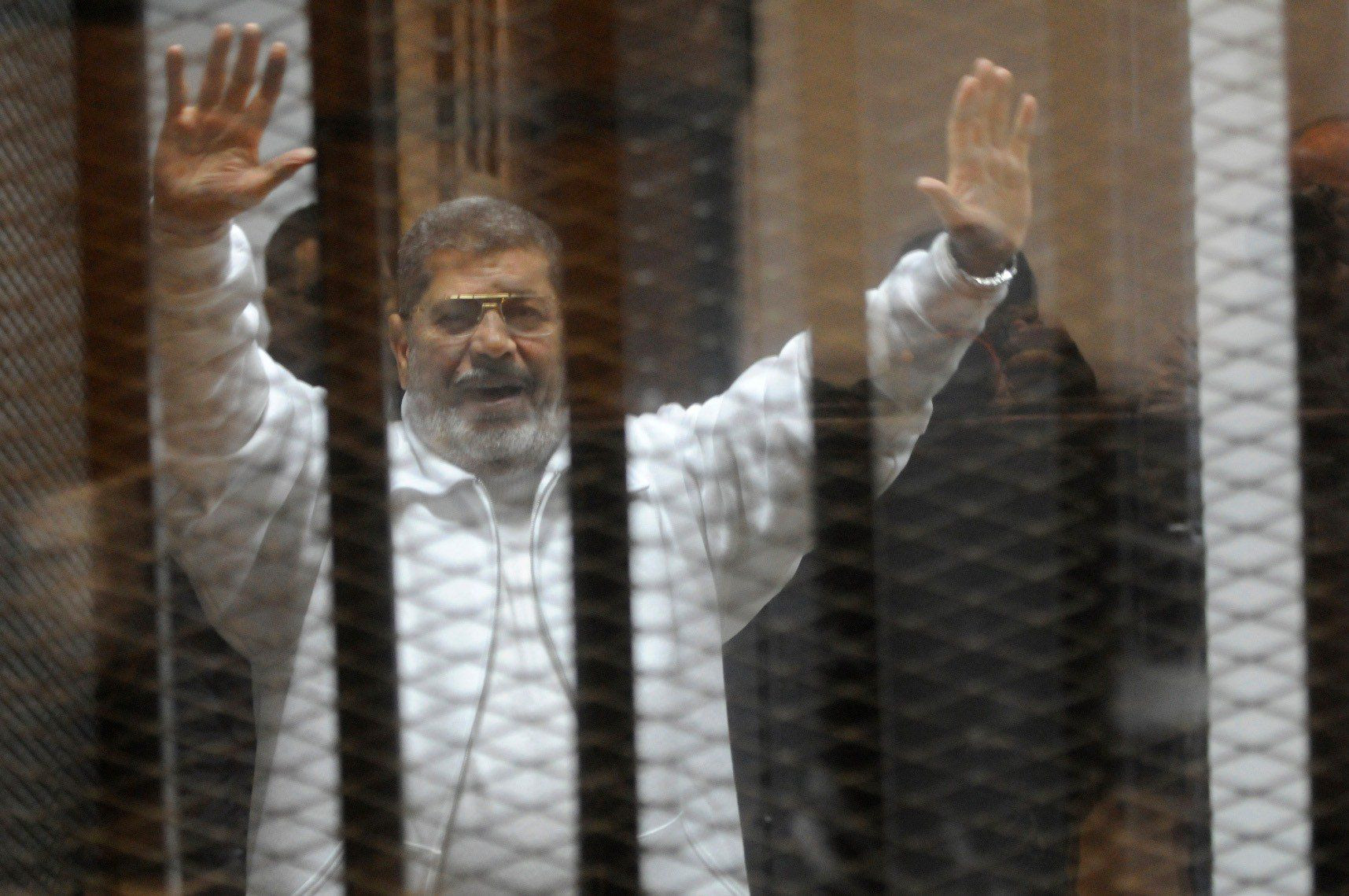Egypt in turmoil after death sentence of former President Morsi?
(Baonghean) - After an Egyptian court sentenced former President Mohamed Morsi and more than 100 defendants to death for prison breaks and attacks on police during the 2011 uprising, supporters of Mr. Morsi and the Muslim Brotherhood carried out attacks on courts and murdered a judge in the Sinai Peninsula. According to analysts, with this tough verdict, the Egyptian government wants to completely prevent the rise of the Islamists. But this also means forcing this group to the end of the road, signaling that extremist actions will make Egypt unstable.
Along with former President Mohamed Morsi, 106 supporters of the Muslim Brotherhood movement were sentenced to death by the Cairo Criminal Court. The court accused these defendants of organizing prison breaks, attacks, and kidnappings of security forces during the "Arab Spring" that overthrew the Hosni Mubarak government in 2011. This verdict by the Egyptian government is not too surprising to international public opinion. Because looking back at the time of the July 2013 coup, Mr. Morsi and the Muslim Brotherhood organization have been accused and sentenced many times on many different charges.
On November 25, 2013, the Muslim Brotherhood movement was listed as a “terrorist organization” by President al-Sisi’s administration. By mid-April, former President Morsi was sentenced to 20 years in prison for crimes related to the murder of protesters in 2012. The latest and most severe was the death sentence for Mr. Morsi and more than 100 Islamist defendants.
 |
| Former Egyptian President Mohamed Morsi. Source: AFP |
According to analysts, the gradual increase in sentences for former President Morsi and members of the Muslim Brotherhood is essentially a probing move by the government of President Abdel Fattah al-Sisi over the past few years towards public opinion at home and in the international community. Because the current President al-Sisi has few options. On the one hand, this government must affirm that the 2013 coup was the right path; but on the other hand, it must also demonstrate a democratic, secular, non-religious social regime and not encounter the failures of the previous government. In the context of Egyptian society still not being truly stable since the Arab Spring wave swept through in 2011 until the 2013 coup, every move and decision of the current government is closely watched by the people.
Despite his cautious approach, President al-Sisi seems to have not fully anticipated the public reaction when the harshest verdict was handed down to Mr. Morsi. Although the Egyptian public does not support the Islamists, they also believe that the death penalty for prison escape is too harsh. As for Mr. Morsi's supporters, anger immediately erupted with at least three courts across Egypt being attacked and burned. The most serious was the murder of a judge in the Sinai Peninsula. The Egyptian Ministry of Interior immediately raised the alert level in public areas of the country. According to media observations, violence is expected to increase sharply in many areas in the coming days.
Outside Egypt, international public opinion immediately reacted strongly. The European Union's High Representative for Foreign Affairs and Security Policy, Federica Mogherini, stressed that the death penalty was inconsistent with Egypt's international commitments.
Meanwhile, US State Department spokesman Jeff Rathke said that the death sentence against Mr. Morsi was “unjust and undermines confidence in the rule of law”. In response to strong warnings from close ally the US, the Egyptian Foreign Ministry said that this was an unacceptable interference in the country’s internal affairs. However, for a young government in the current unstable context, it seems that ignoring such warnings is not the wisest decision, especially when Egypt needs to reaffirm its position and role in the region and international forums.
Thus, it seems that with the death sentence for Mr. Morsi, President al-Sisi is in a difficult position before public opinion at home and abroad. According to Egyptian law, this sentence will be sent to the Grand Mufti - the highest religious organization in Egypt for review, before making a final decision. However, the decisions of this organization are usually not binding on the court's decision. The court is expected to announce the final decision on June 2.
Until then, public opinion will wait for President al-Sisi’s steps to appease public opinion and deal with possible negative developments. A wave of resistance from the Islamists cannot be ruled out. However, there are also opinions that President al-Sisi’s decision is necessary. Because at this time, only by being resolute and accepting immediate risks can we move towards the long-term goal of maintaining a democratic, secular, non-religious social regime that General al-Sisi has proposed.
Phuong Hoa






